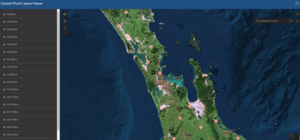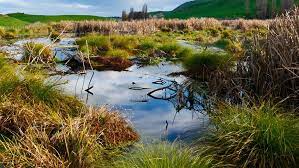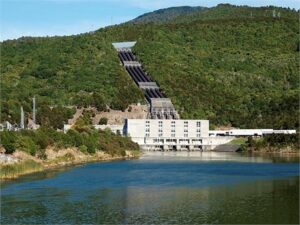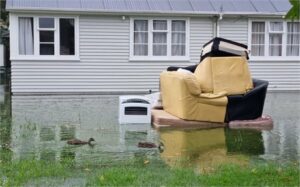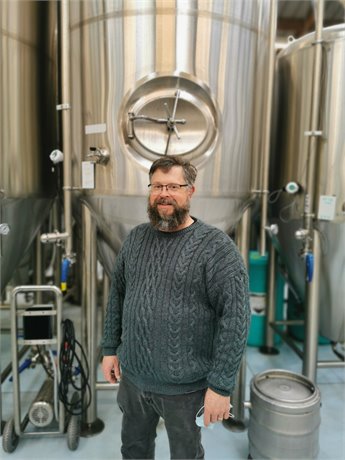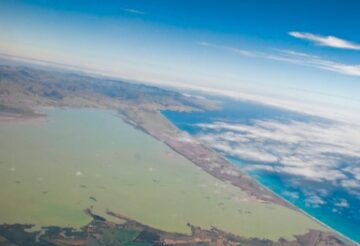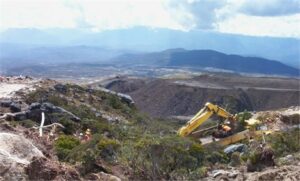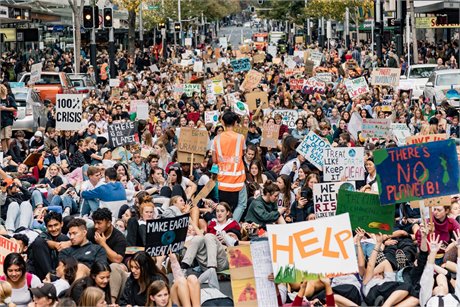
Media release | “For decades communities, students, and activist groups have been calling on urgent and real action from central and regional governments to reduce climate change. As a country we have barely budged, with emissions still rising and climate change impacts now hitting communities regularly,” says Emily Tuhi-Ao Bailey (Ngati Mutunga, Te Atiawa, Taranaki iwi and co-founder of Climate Justice Taranaki).
Bailey urges everyone to get on the streets with the kids for the Aotearoa Climate Strike this Friday, and remind politicians and the privileged rich that they aren’t doing nearly enough.
“We can’t plant our way out of this mess when storms, floods, wildfires and disease are impacting our forests. We need to cut actual emissions from agriculture and fossil fuels now. Banning fossil fuel extraction and fossil fuelled vehicles and buildings needs to happen this decade while we also bring a rapid end to big dairy. We have to take this seriously rather than laughing nervously and kicking the problem down the road for our tamariki to deal with. We have 6.5 years left to get emissions right down. No more excuses!”
Pere Huriwai-Seger is Co-Founder of Aotearoa Liberation League, and Co-Producer of the documentary film “Milked”. He reminds that Indigenous Peoples are impacted the most by this changing climate that is becoming increasingly more chaotic. “It destablises the balance of nature, throwing the people that rely on the natural world equally off balance”.
“Climate crisis isn’t a complicated issue for me, it’s as simple as society’s disrespect for Ranginui and Papatūānuku. If we resolve that disrespect and also the racism that underpins it, we’ll resolve not only climate crisis, but in fact all of our environmental issues”.
“Indigenous communities have the lowest environmental impacts on average. This makes them the best advocates for things like climate crisis action, freshwater quality and more, because it’s in our blood, it’s in our whakapapa (genealogy) to be guardians”, says Huriwai-Seger.
Catherine Murupaenga-Ikenn (Ngāti Kurī, Te Rarawa, and member of Te Waka Hourua – Māori climate justice advocates and Te Tiriti allies) agrees. She hopes that the climate Strike day will encourage remembrance and reflection of the cyclones which have already ravished communities this year, both nationally and Pacific-wide.
Together with Pacific human rights advocates, she engaged in this year’s two week long United Nations Permanent Forum on Indigenous Issues in New York ending on 28 April.
This Forum’s theme was “human health, planetary and territorial health and climate change: a rights-based approach”, and concerns were expressed that UN member states are actively enabling ongoing human rights violations of Māori and Pacific Indigenous Peoples leading to continued planetary instability.
“Tangata whenua/ tangata moana in our region are disproportionately impacted by sea level rise, severe weather events, flooding and droughts. But we know Indigenous Peoples’ activism alone won’t force our elected officials and corporations to implement a meaningful climate emergency response.”
Murupaenga-Ikenn explains that’s why Te Waka Hourua is encouraging people of all ethnicities, all ages, and all socio-economic backgrounds to mobilise together this election year. “On Aotearoa Climate Strike day 26 May, we must make the People’s demands be heard,” she says.
- SEO Powered Content & PR Distribution. Get Amplified Today.
- PlatoAiStream. Web3 Data Intelligence. Knowledge Amplified. Access Here.
- Minting the Future w Adryenn Ashley. Access Here.
- Buy and Sell Shares in PRE-IPO Companies with PREIPO®. Access Here.
- Source: https://www.carbonnews.co.nz/story.asp?storyID=27787
- :is
- :not
- 1
- 26
- 28
- 72
- a
- Action
- actively
- Activism
- Activist
- actual
- advocates
- Ages
- agriculture
- All
- all ages
- alone
- already
- also
- and
- April
- ARE
- AS
- average
- backgrounds
- BAILeY
- Balance
- BE
- because
- becoming
- been
- BEST
- Big
- blood
- both
- bring
- broad
- but
- by
- call
- calling
- central
- change
- changing
- Climate
- Climate change
- climate crisis
- CO
- Co-founder
- Communities
- complicated
- Concerns
- continued
- Corporations
- country
- crisis
- Cut
- dairy
- day
- deal
- decade
- decades
- demands
- Disease
- documentary
- doing
- down
- elected
- Election
- emergency
- Emissions
- enabling
- encourage
- encouraging
- end
- engaged
- enough
- environmental
- equally
- events
- everyone
- Explains
- expressed
- extraction
- fact
- Film
- For
- Force
- Forum
- fossil
- Fossil fuel
- fossil fuels
- Friday
- from
- Fuel
- fuels
- get
- Governments
- Group’s
- Guardians
- happen
- Have
- he
- Health
- heard
- hitting
- hopes
- HTTPS
- human
- human rights
- if
- impacted
- impacting
- Impacts
- implement
- in
- increasingly
- instability
- issue
- issues
- IT
- jpg
- Justice
- kids
- Know
- leading
- League
- left
- Level
- liberation
- like
- ll
- Long
- lowest
- make
- MAKES
- May..
- meaningful
- member
- more
- most
- must
- nationally
- Nations
- Natural
- Nature
- nearly
- Need
- needs
- New
- New York
- no
- normal
- now
- of
- off
- officials
- on
- ongoing
- only
- our
- out
- Pacific
- People
- people’s
- permanent
- plato
- Plato Data Intelligence
- PlatoData
- Politicians
- privileged
- Problem
- quality
- racism
- rapid
- rather
- real
- reduce
- reflection
- region
- regional
- regularly
- release
- rely
- response
- Rich
- right
- rights
- Rise
- rising
- road
- s
- says
- SEA
- Sea level
- severe
- she
- Simple
- Society
- States
- Still
- storms
- strike
- Students
- support
- Take
- than
- that
- The
- Them
- theme
- they
- things
- this
- this year
- Throwing
- to
- together
- two
- UN
- United
- united nations
- urgent
- urges
- Vehicles
- Violations
- was
- Way..
- we
- Weather
- week
- were
- when
- which
- while
- why
- will
- with
- world
- year
- years
- york
- zephyrnet

